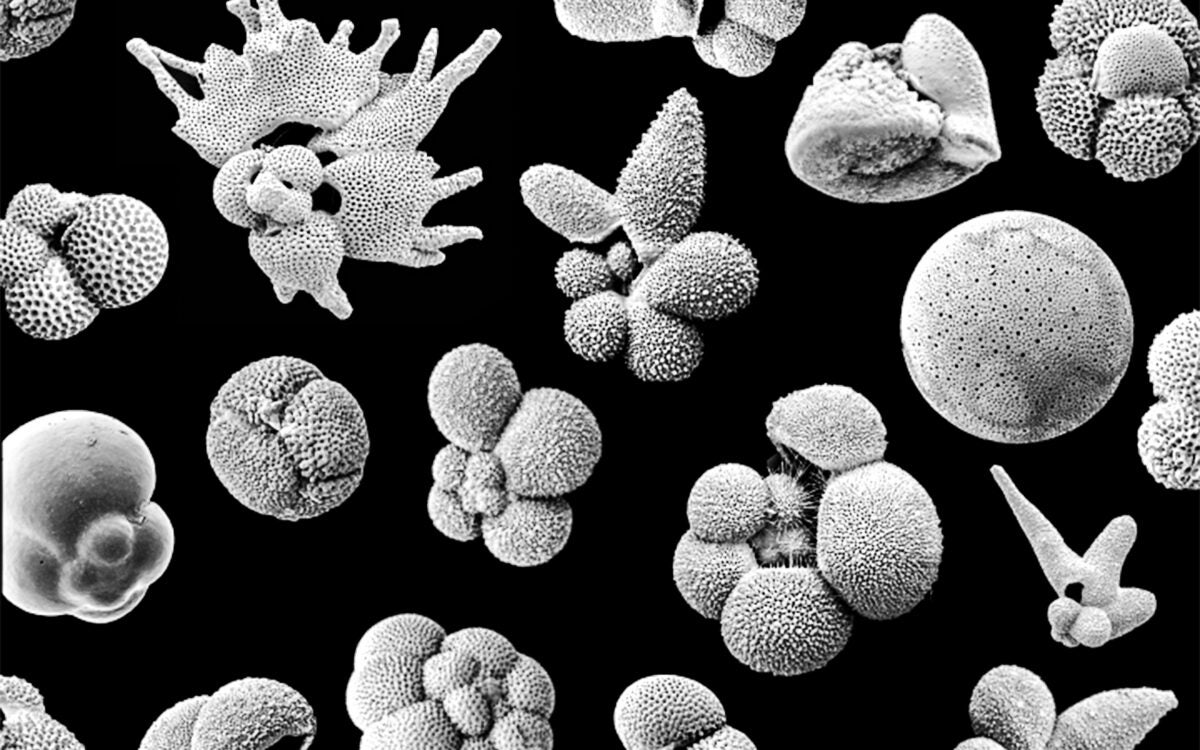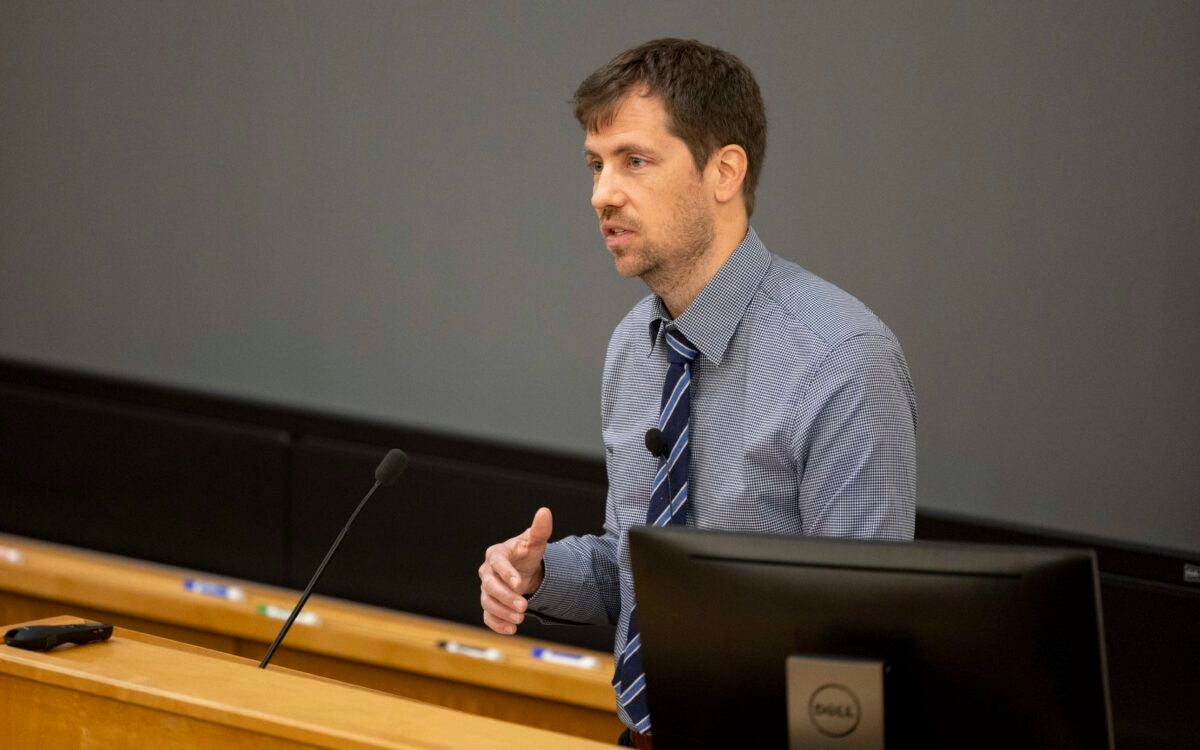Harvard students, meet the Stone Age
They learn to respect Neanderthals’ skills by making stone tools from scratch
More like this
Though they’ve long been portrayed as unintelligent brutes, Neanderthals were far more sophisticated than popular culture — and car insurance commercials — might suggest.
To prove it, Christian Tryon asks his students to break rocks.
Tryon, an assistant professor of anthropology, is the creator of a freshman seminar called “Finding Your Inner Neanderthal,” in which — among other activities — students attempt to manufacture their own Stone Age tools from scratch.
“Caveman is usually this derogatory term, like the commercials say, ‘So easy a caveman could do it,’” Tryon said. “[But] that’s not true. It’s not very easy at all to make these stone tools. I want students to learn to appreciate the craftsmanship that went into making these tools tens of thousands of years ago, and … by immersing themselves in making what, in many ways, is the oldest technology, I think that’s a really powerful way to appreciate the past.”
The hands-on challenge of manufacturing stone tools isn’t the only way in which students in Tryon’s class grapple with how to understand the past.
“The larger context is that the class will culminate with an exhibition in the Peabody Museum designed by the students,” Tryon said. “So they will have to think about how much of our own biases or cultural baggage we convey in what they choose to put, or not put, in that exhibit. Really, this is an attempt to ask them to think about how do we know what we think we know about the past, and how do we convey it to a — hopefully — interested public?”
The hands-on nature of the class, Tryon said, also gives students a unique educational opportunity to understand history from a new perspective.
“For me, that’s everything,” he said. “Reading about things is great, but if I can do it, if I can touch it, if I can feel it … I think that’s a very different, active type of learning and teaching. It allows them to touch the past in a way that you otherwise can’t.”




